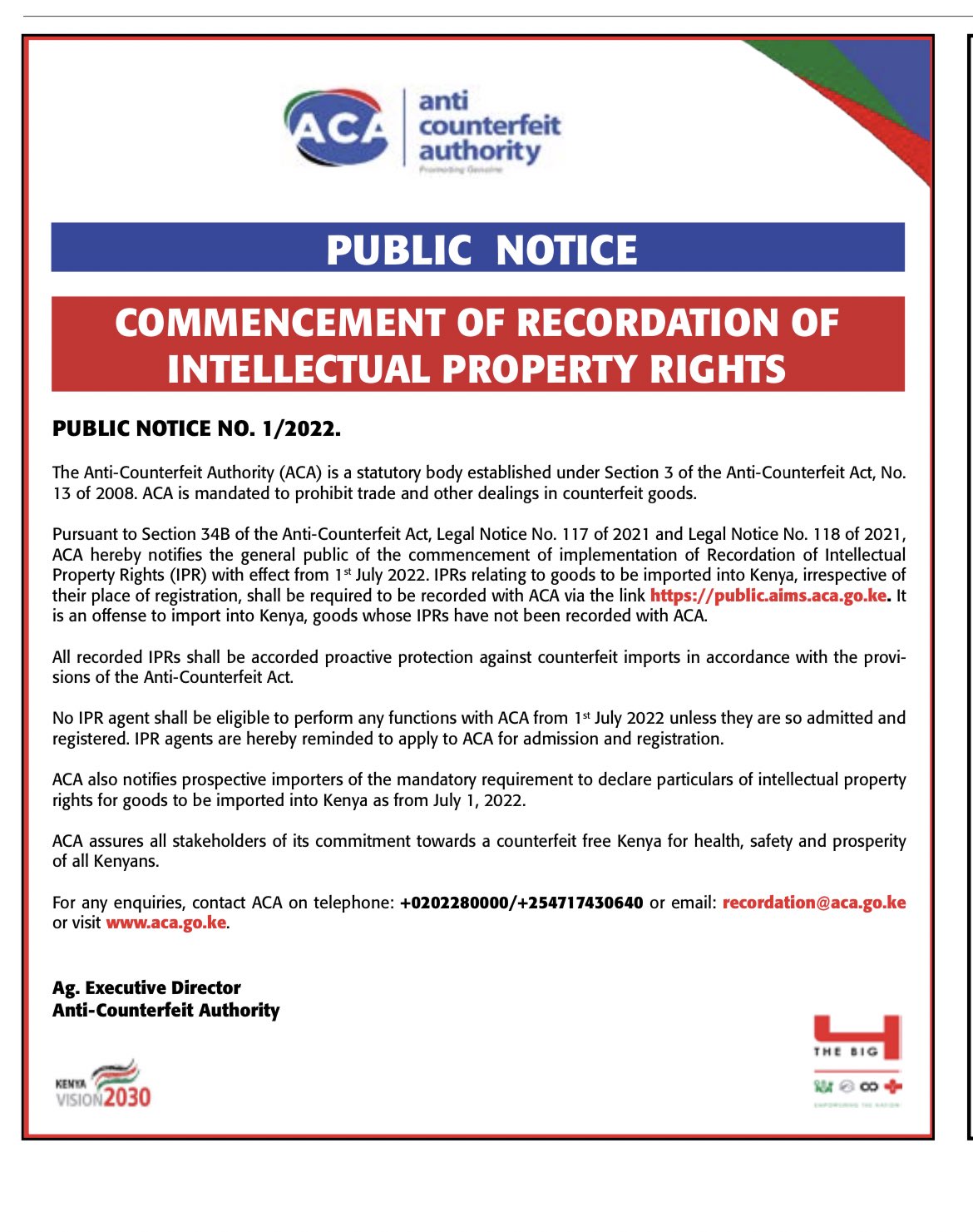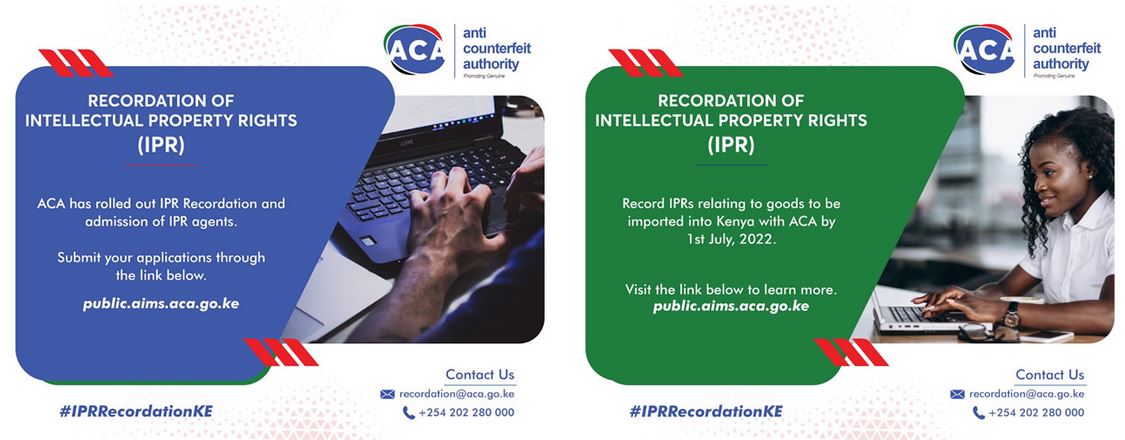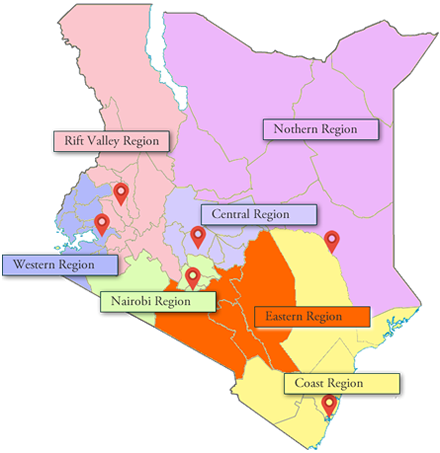Commencement of Recordation of IPR
Commencement of Recordation of Intellectual Property Rights in Kenya

The Anti-Counterfeit Authority hereby announces the commencement of Recordation of Intellectual Property Rights (IPR) through the Anti-Counterfeit Authority Integrated Management System (“AIMS”) via the link ACA Public System (public.aims.aca.go.ke).
IPR Recordation involves the creation of a database of IPR information relating to trademarks, copyrights, trade names, or any other protected intellectual property rights, for all goods to be imported into Kenya.
This information is made available on the ACA Public System and shall be used by ACA inspectors and other law enforcement officers at the various points of entry to prevent entry of counterfeit imports into Kenya.
Counterfeit imports shall be subjected to proactive seizures and forfeiture or prosecution in accordance with the provisions of the Anti-Counterfeit Act. Goods bearing IPRs that are not recorded with ACA shall be prevented from being imported into Kenya.
The IPR Recordation function was introduced through the Statute Law (Miscellaneous Amendments) Act of 2018 under Section 34B of the Anti-Counterfeit Act. The enabling Regulations- the Anti-Counterfeit (Recordation) Regulations 2021, were published in the Kenya gazette on 23rd July 2021 under Legal Notice Number 118 of 2021.
The amendment of the Act and formulation of the Regulations involved extensive public participation as demonstrated on https://www.aca.go.ke/media-center/news-and-events/166-invitation-to-public-participation-on-the-draft-anti-counterfeit-amendment-regulations-2019. This public participation exercise precipitated into technical working groups that finalized the proposed Regulations which were subsequently published on 23 July 2021 under Legal Notice Number 118 of 2021.
Understanding IPR Recordation
Confusion arises between registration and recordation of Intellectual Property Rights. Whereas registration of Intellectual Property Rights entails granting of ownership and exclusive right of an Intellectual Property, IPR recordation on the other hand aims to prevent counterfeit imports by developing an IPR database for goods to be imported into Kenya and using that database to check imports for counterfeit goods.
Noting that Kenya is a net importer of consumable goods, the recordation process applies to IPRs of goods being imported into the country irrespective of the jurisdiction of registration. The Anti-Counterfeit Act of 2008 recognizes Intellectual Property Rights subsisting outside Kenya in its definition of counterfeiting.
IPR recordation practice in other Jurisdictions
IPR Recordation has been lauded as one of the most effective international best practices in prohibiting the importation of counterfeit goods. Kenya is the second country in Africa to adopt IPR Recordation after the Republic of South Africa which administers recordation through their Companies and Intellectual Property Commission.
Similarly, United States of America mandates the U.S. Customs and Border Protection (CBP) to protect intellectual property rights and guard against infringement of U.S. copyrights and trademarks by administering the recordation of trademarks and copyrights. UAE, through the Dubai Customs Department uses a Trademark Recordation System to combat the entry of illegal goods into the country. Other jurisdictions that have embraced IPR Recordation include; China, Mauritius, and Indonesia.
Recordation Processes.
The Recordation process provides for; Application for recordation, Renewal of recordation, Declaration of IPR particulars for goods being imported into Kenya and Searching the recordation database. All these services are accessible online through the ACA Public System. IPR Agents can also apply for registration and admission through the same platform.
Visit ACA Public System for more information.
IPR Recordation aims to prevent counterfeit imports into Kenya. This in effect translates to proactive protection of health and safety of consumers. IPR owners will be protected from unfair competition from counterfeit imports. Traders and importers will have a platform to confirm the genuineness of goods prior to importation, and this will in turn cushion them from law enforcement consequences such as seizures and prosecutions.
The Anti-Counterfeit Authority remains committed to protecting the public from harmful counterfeit goods. ACA continues to enlighten the public on the dangers of counterfeit goods through sensitizations and training forums.




